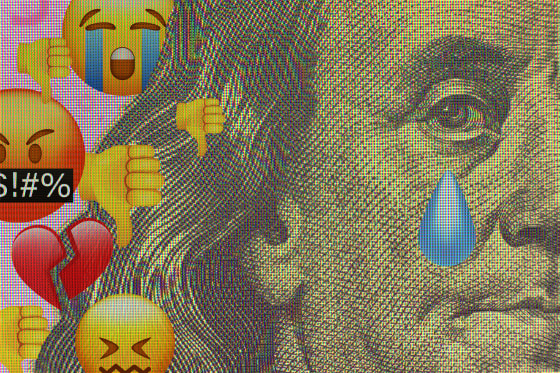Millennials are worried they are about to experience a “once-in-a-lifetime” recession. Again.
Dire economic downturns are supposed to be rare, but millennials — defined by the Pew Research Center as those born between 1981 and 1996 — have already had several recessions during formative stages of their lives, from the dot-com bubble burst when most were children, to the Great Recession as they entered the workforce after college, to the Covid-19 pandemic when they were trying to settle into their careers.
Once dubbed the “unluckiest generation,” millennials have postponed major milestones during past recessions. A significant slice of them graduated college between 2007 and 2009 and struggled to find jobs, which led them to delay buying homes, getting married, and making major purchases, such as cars. Then, after the pandemic led to another sharp recession, some millennials, contending with student loans and rising costs of living, decided to rethink having kids.
Now, as the Trump administration’s tariffs program roils global markets, raising fears of another recession, the millennial cohort of approximately 29- to 44-year-olds is expressing their frustration and fatigue over the financial instability that has haunted so much of their lives.
Some have posted videos on TikTok joking about how they have little advice for Gen Zers who may have to navigate their first possible recession. Others have shared how they are preparing for economic turmoil. Most are just going on social media to trade memes and jokes.
“It’s out of our control, and so why not handle it with a sense of humor and joke about it?” said Jeremy Dozier, 38, a real estate agent in Los Angeles County, California, who has posted funny TikTok videos as a way to express his disdain for the current economic situation.
Dozier knows how painful recessions can be: He graduated college in 2008 and was forced to take temp jobs out of college because he couldn’t find full-time work during the Great Recession. By the time the pandemic hit, he had been in a steady job for a decade, but then was laid off.
“Every time we start to get ahead or it starts to feel like, ‘OK, things are going to work out,’ the other shoe drops,” he said.
TikTok has been an outlet for him. In a video that Dozier posted in February, he pretends to sob as the song “I Dreamed a Dream” from “Les Misérables.” plays. The caption to the video reads: “Millennials preparing to live through their 4th recession before hitting 40.” The video racked up 23,000 likes and hundreds of comments.
For young people, sarcasm and memes have become increasingly popular coping mechanisms, said Pamela Aronson, a sociology professor in the Department of Behavioral Sciences at the University of Michigan-Dearborn.
“These social media arenas represent a shared cultural understanding, and these then get spread across groups who are connected to each other digitally,” she said. “’It both reflects and transforms how we think about things.”
Not all members of this generation have fared poorly during past economic uncertainty. A wave of millennials were able to purchase houses during the pandemic. And concern about another recession is not limited to only their age group, said Jean Twenge, a professor of psychology at San Diego State University and author of the 2023 book “Generations,” which posits that technology, not major events in history, is the primary cause of generational differences.
“Millennials went through these horrible economic times at the beginning of their adult lives, then built everything back up, did really well, and now are rightfully concerned that if there’s another recession, that they could lose it all again,” Twenge said. But, she added: “I do think this is something that is coming up for people of all ages.”
There was some relief Wednesday afternoon, as stocks soared after President Donald Trump announced that he would pause for 90 days higher tariff rates on dozens of trading partners.
John Sabelhaus, a visiting fellow in economic studies at the Washington-based think tank the Brookings Institution, pointed out that “the overall strategy of the current Congress could be extremely disruptive” still and noted that a financial downturn at this time would be especially damaging to millennials.
“Millennials are exactly at that age where they are building businesses, and they’re trying to make these businesses work,” he said. “It’s always risky, and when you throw in a lot of macroeconomic risk, it just makes it that much worse.”
Christie Cronan, a millennial content creator in Central Florida who has been posting about recession fears, said she feels like her videos have brought comfort to others in her generation.
“Everyone feels validated. This is what people are expecting, that we are in an economic downturn of some sort — whether they want to call it a recession or not,” she said.
Dozier, the millennial in California, said posting lighthearted TikToks has prompted other people to open up about their economic anxiety. He said people have shared what they are doing to prepare for financial stress, with some saying they are growing their own food and others commenting that they bought an extra freezer so they can try to stockpile frozen items now before tariffs hit.
“While people in the comments are talking about the struggles they’re going through, it’s all kind of handled with a sense of humor and a sense of community,” he said. “We’re going to weather the storm together.”

